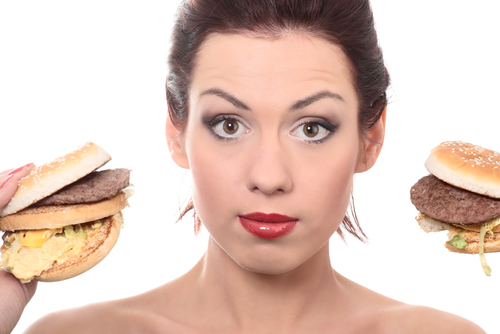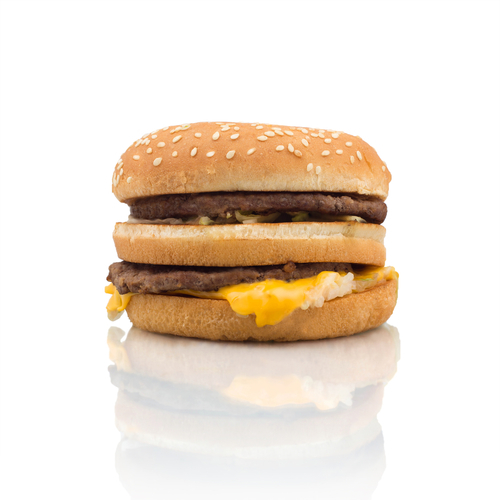Short answer
Bic Macs are indeed bad for you. It’s salty and fatty, and you can find the protein gains somewhere else for less the junk.
Recommended Alternative
Long answer
For a while, Big Macs have been the trademark for the American diet: a greasy, delicious, heart attack in a bun. And frankly, we find that the title is rather fitting.
The Big Mac has 540 calories according to McDonalds. But as we all (should) know calories mean nothing by itself. What really matters is what this number is comprised of, and in this case, half of it is sheer fat.
Fat: The Big Mac has about 28 grams of fat according to McDonalds. About 50% of the fat is saturated, the same kind linked to high blood pressure and other cardiovascular problems. And of course, the Big Mac does have its share of the unhealthiest fat, trans fat. 2 grams of it.
Trans fat is frowned upon by several health institutions because it increases our bad cholesterol and is the hardest kind of fat to get rid of. And for most, it’s also the hardest to resist. It’s pretty addictive, which is one reason America is obese.
By looking at fat alone, and acknowledging that half of the fat in this burger is set to kill you, you can see why this isn’t such a healthy meal. But it gets worse!
Sodium: The American Heart Association advises us not to consume more than 1,500 milligrams of sodium daily. Any more of that, and you’re oozing for a stroke.
The Big Mac? 1040 mg. Just about 460 milligrams shy of causing you dietary problems and premature death. As far as sodium goes, you’ll be fine if you ate a Big Mac and a Big Mac alone for the rest of the day.
What about carbs? The Big Mac weighs in at 45 grams of carbs—about two sweet potatoes. And sweet potatoes are actually nutrient-dense. What matters most about carbs is, how much of it is actually fiber. In other words, will you feel satiated and satisfied after eating it? With only 3 grams of dietary fiber, we think not. 9 grams of the carbs are claimed to sugars and the rest of it can be deduced to starchy, refined, belly-plumping goodness.
As far as protein goes, the Big Mac scores extremely well. Claimed by McDonalds to use 100% real beef, the Big Mac contains a heaping 25 grams of protein per patty. However, McDonald’s meat has gone under the watch glass many times, specifically for its inability to rot.
A characteristic of whole, natural foods is susceptibility to rotting. It’s a reason snacking and preservatives were introduced—for a more convenient approach towards food. However, the more chemicals and unnatural substances you add, the more adverse effects ensued.
Since McDonalds claims absolutely nothing is added to the meat, the lack of rotting must be because of salt, a natural preserver. And if a burger can outlast years without transforming into a fungi playground, that’s a lot of salt.
The question of rotting regarding Big Macs has welcomed lots of feedback, including an avid experimenter that suggested it was a myth. Regardless, the Big Mac is nothing short of controversy. With actual documentation of this long-lasting burger, and not to mention it’s about 500 calories, half of it being fat, and the fact that the secret sauce we learned has more lab experiments than ingredients, save the guesswork and skip this burger.
Possible short-term side effects
- heartburn
- nausea
- indigestion
- cravings
Possible long-term side effects
- clogged arteries
- high blood pressure
- type 2 diabetes
- heart disease
- heart attack
- stroke
- death
Ingredients to be aware of
- sodium
- saturated fat
- trans fat
- caramel color
- soy lecithin
- sugar
- datem
- high fructose corn syrup
- calcium disodium edta
- "natural flavors"

Healthier alternatives
- homemade burgers
Our Wellness Pick (what is this?)
Gardein Vegan Chili
- Plant-based protein
- Includes beans
- Ready-to-eat
- Vegan-friendly
- 15 oz can
 Approved by
Approved by 















